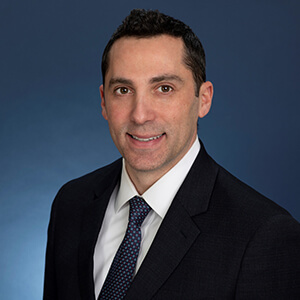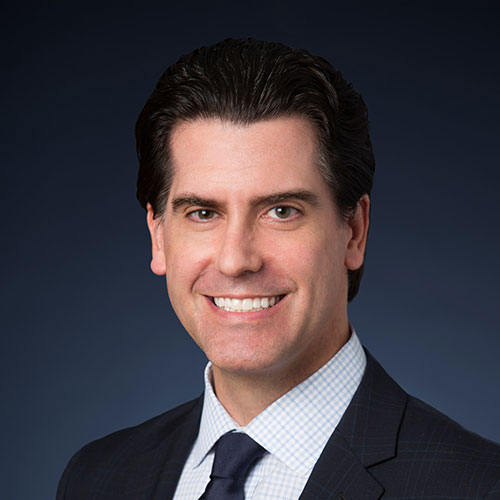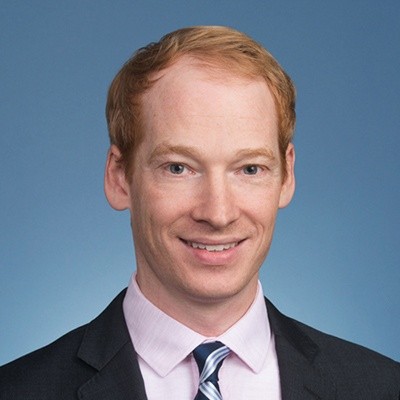Published June 26, 2023 | 3 min read
Key Points
- Investor sentiment is challenged but innovation abounds, placing a spotlight on the regulatory and capital raising pathways required to realize strategic value.
- Our Day One keynote with Olympic Gold Medalists Briana Scurry and Dr. Sara W. Hess, Psy.D., shed light on the universal impact of mental health issues.
- Our Day Two keynote convened industry veterans to discuss how today’s rapidly evolving landscape has created uncharted territory for M&A activity.
- Big pharma’s pursuit of substantial top-line growth remains focused on blockbuster opportunities that target distinct, unaddressed medical needs.
This year’s Global Healthcare conference underscored the industry’s continuing focus on innovation, collaboration, and capital discipline. Across over 100 fireside chats and keynotes, several themes emerged, as companies actively addressed the challenges of advancing patient care and deploying capital in the current landscape.
The innovation imperative
Despite challenging macro and market trends, the conference’s primary focus remained the pursuit of ground-breaking therapies, technologies and modalities. Our company keynotes delved into critical areas across drug discovery, exploring ways to accelerate progress in key areas, including oncology, CNS disorders, cell and gene therapy, and rare diseases.
Advancing innovations in these fields plays a pivotal role in fostering economic growth, improving patient care, addressing healthcare challenges, and harnessing the potential of technology – albeit against a backdrop of increased resource optimization, capital discipline, and operational efficiency.
Balancing the need for capital optimization with the imperative for innovation will be crucial. In today’s world, investment opportunities will be scrutinized more closely, as investors seek projects with clearer value propositions, stronger clinical evidence, and potentially shorter timeframes to market.
Addressing the challenges of mental health
Our Day One keynote underscored how understanding and addressing mental health concerns have become paramount in today's world. By sharing their personal mental health journeys with attendees, Olympic Gold Medalists Briana Scurry and Dr. Sara W. Hess, Psy.D., not only brought attention to the struggles many individuals face, but also emphasized that mental health issues can affect anyone, regardless of achievements.
Their openness helps reduce the stigma associated with mental health, encouraging others to seek help and support when needed. By fostering a more open dialogue, people are now more willing to discuss their mental health struggles, seek support, and advocate for better resources and services. This shift in perception has created an environment where individuals feel more empowered to address their mental health needs.
Along with highlighting Briana and Sara's efforts to contribute to a compassionate society that prioritizes mental health for individuals and communities, the keynote also commended the work of the RBC Foundation USA in supporting youth mental wellbeing.
Shifting dynamics in M&A
On Day Two of the conference, our keynote focused on the fast-moving world of M&A, featuring senior executives from companies that have recently executed significant multi-billion dollar transactions – industry veterans Ted Love, former CEO of Global Blood Therapeutics, Marc de Garidel, former CEO of CinCor, and Abbas Kazimi, Chief Business Officer of Nimbus.
While acknowledging emerging antitrust concerns from the Federal Trade Commission (FTC), the panel believed these concerns may be overstated and unlikely to impede recent deals. Increased regulatory scrutiny on larger companies could reduce future appetite for bigger deals, but our panelists highlighted it could also move buyers down to earlier-stage assets – a shift which could benefit small-to-mid-cap companies.
According to our panelists, big pharma will actively pursue deals in order to enhance their pipelines in anticipation of post-COVID and IRA-related revenue declines that will be compounded by impending patent cliffs. However, they also noted a growing sense of risk aversion among potential acquirers, with larger companies targeting higher-caliber, lower-risk assets with positive clinical data for revenue growth.
The complexity of today’s strategic landscape may also limit traditional M&A, leading to more partnerships and structured deals. However, deal flow was expected to increase later in the year as valuation expectations align with reality.




